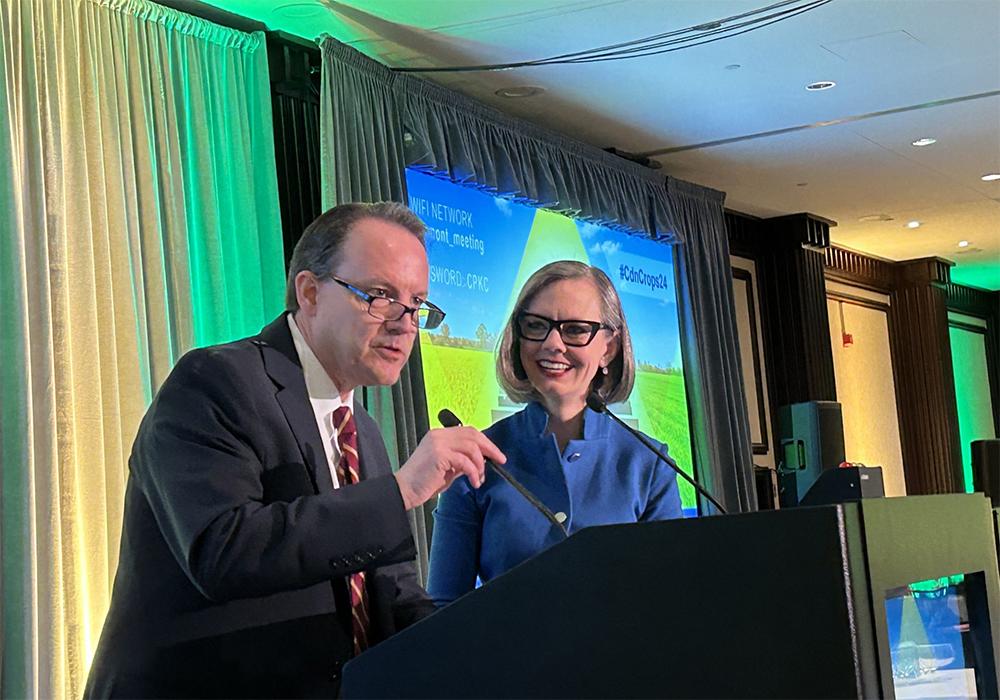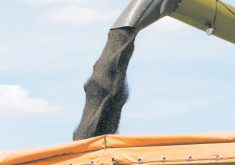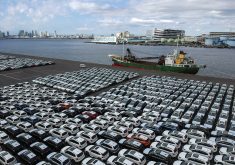Despite continuing problems with weather across much of Western Canada, the country managed to produce an 18 million tonne crop in 2023, something which would have been unimaginable 20 years ago, when the goal was to get up to seven million tonnes per year.
Canola Council of Canada President Chris Davison highlighted the growing balance in canola product markets, with raw seed exports making up a smaller portion while export oil and meal shipments become more important, and domestic crushing radically expands.
“We see good progress on several fronts,” said Davison at the CCC’s annual meeting Thursday morning.
Read Also

Pakistan reopens its doors to Canadian canola
Pakistan reopens its doors to Canadian canola after a three-year hiatus.
CCC Chair Jennifer Marchand looks forward to the 2024 growing season in the video below.
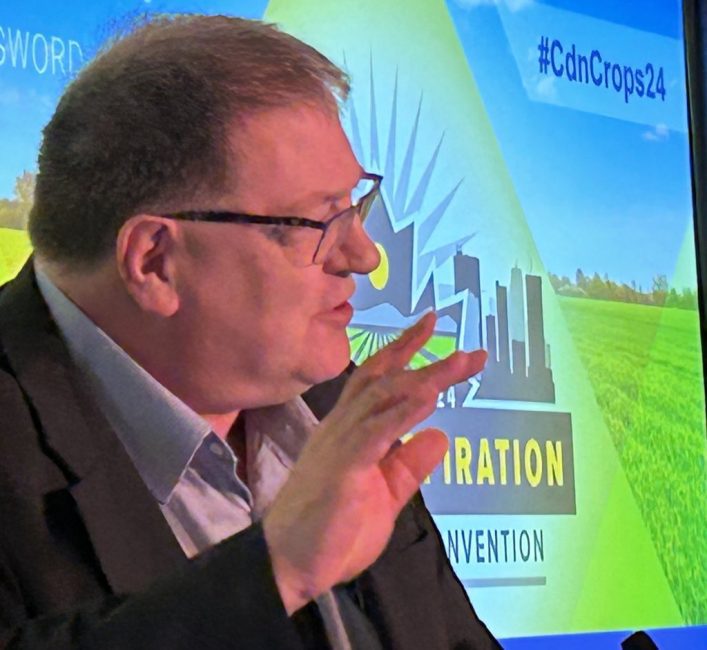
Academic Ken Coates provides a sobering assessment of Canada’s array of presently crippling problems, which are seeing Canada tumble down the list of wealthy nations, but offers an upbeat forecast for Canada if it takes on the challenges.
FCC economist Desmond Sobool forecasts a year of razor-thin margins, in an era of declining productivity growth. Droughts are having a big impact on the ratio between costs and returns.

Continuing with the frankness of opinions being expressed at this convention, Saskatchewan farmer Kristjan Hebert shared his views on sustainability and farmer environmental impacts, as well as the difficulties of making the public and governments understand what’s really going on at the farm.
“We’re way ahead of the world on sustainable production. We’re godawful at marketing,” said Hebert, highlighting zero-till farming, soil health improvements and a continuing improvement in carbon emissions per bushel in Canadian farming.
Herbert said Canadians need to be more vocal in selling Canada’s low-carbon food production around the world, highlighting its relatively low carbon impact compared to other sources of food. Unfortunately, few people in either Canada or the rest of the world realize how sustainable Canadian farming already is, with farmers doing more and more to protect the land they farm.
“I believe everyone in agriculture wants to have healthier soils and healthier foods,” said Hebert.
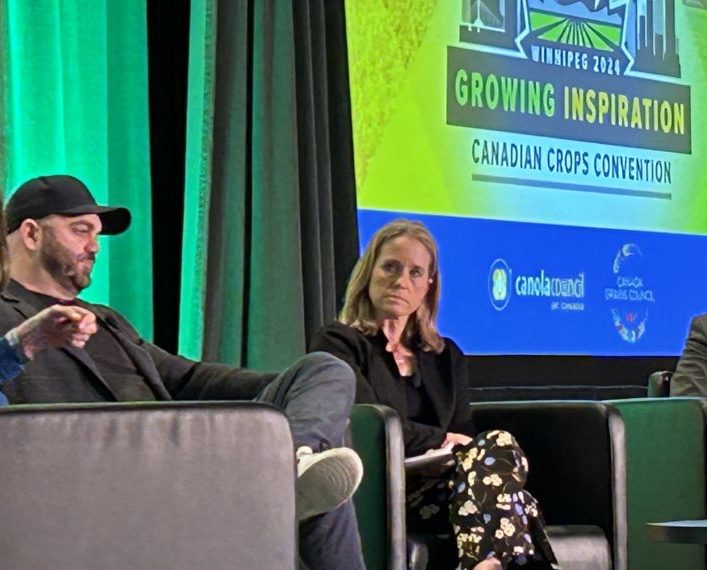
Legendary Canadian trade negotiator Steve Verheul describes a “fraying” international trading order in a back-and-forth with Tyler McCann of the Canadian AgriFood Policy Institute. “The path we’re on now is not a good one.”
Verheul said Canada needs to work with other mid-sized countries to strengthen the support for rules-based trade, since the biggest countries are driving the move away. “We don’t want a world where the largest players set the rules.”

CropLife International President and CEO Emily Rees challenges Canada to become a more vocal and dynamic champion of rules-based trade. “Why are you so afraid of upsetting people?” Rees thinks Canada to become less “polite” and resolutely fight for rules-based and science-based trade, especially in a time in which many countries have backed away.
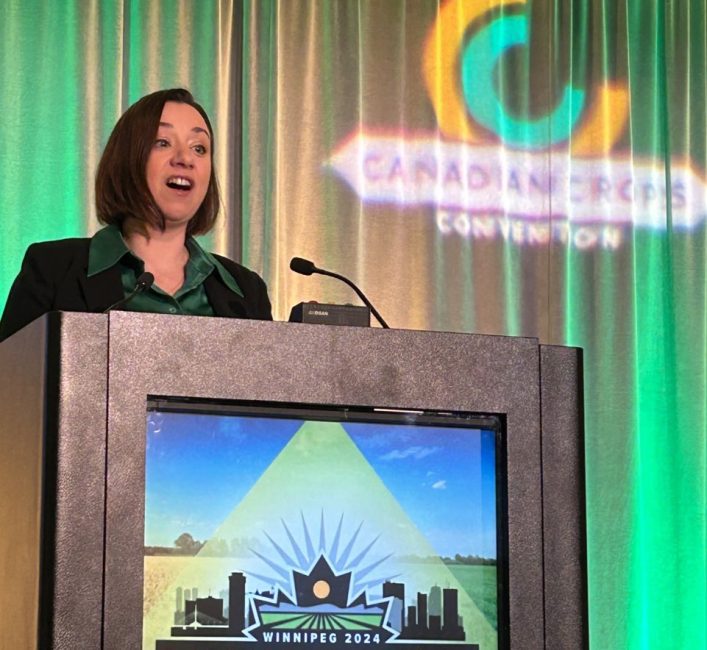
The 2024 Canadian Crops Convention has opened in Winnipeg, with farmers from across Canada and the leaders of Canada’s agriculture industry gathering for the biggest ag industries event of the year.
Here Chris Davison, the president of the Canola Council of Canada, describes the biggest concerns for the industry today.
Janet Drysdale of CN railway at the opening reception Tuesday night talks about the successes her company is having hauling grain this year.
Contact ed.white@producer.com


